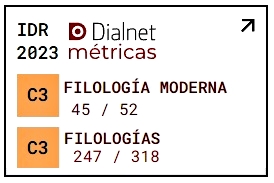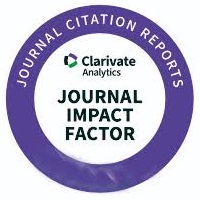About the Journal
Focus and Scope
The journal Zibaldone. Estudios Italianos is a publication whose main objective is the diffusion of articles and texts with an academic character related to the Italian literature, lenguage, history, art and philosophy, as well as to the relations between Italian, Spanish and Latin American languages and cultures.
Peer Review Process
Open Access Policy
This journal provides immediate open access to its content on the principle that making research freely available to the public supports a greater global exchange of knowledge.
Abstracting and indexing databases
Zibaldone. Estudios italianos is included on a wide range of abstracting and indexing databases, such as:
- MLA
Code of ethics
Practices contrary to scientific integrity and research ethics (plagiarism, reproduction of work already published, defamation, conflict of interest)
The journal adheres toThe European Code of Conduct for Research Integrity, developed by the All European Academies - ALLEA. Among the main practices contrary to scientific integrity are the production and falsification of research data and plagiarism, such as the reproduction of previously published work without mentioning the source. The journal's editorial bodies undertake to monitor these types of practices, both preventively and, if necessary, by withdrawing articles already published. Reviewers are asked to pay special attention to this aspect.
Zibaldone always assesses the possible presence of content that could damage the reputation of an individual or organisation, it being understood that freedom of expression remains one of the main values of the journal's code of ethics. Likewise, transparency is safeguarded in cases of potential conflict of interest.
Post-publication debate and management of any changes and corrections to published articles
In accordance with the journal's objectives of scientific research, in-depth study and comparison on the various fields of interest of Italian studies, cultural studies, translation from and into Italian, etc., our journal encourages initiatives to create, enhance and stimulate debate following the publication of contributions. In particular, all the editorial organs of the journal are actively engaged in stimulating the submission of new contributions that may enrich the discussion on the topics covered, possibly also in the form of letters to the editors.
Should the author of an already published contribution express a desire to make changes or corrections to the text, the editorial bodies of the journal undertake to make such interventions possible only if they are editorial errors that do not affect the content or in exceptional circumstances that are adequately justified. In the latter case, a correction note may be published.





